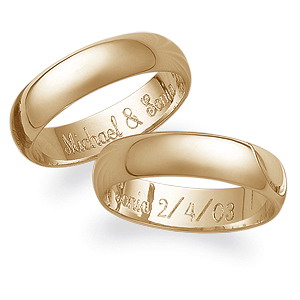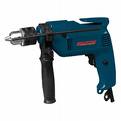|
Are Pawn shops regulated in South Africa-
Are you searching the internet for means and ways to earn money? If you are in immediate need of funds and you're visiting websites that compare payday loans, you may also want to look at other options. Aside from loans, one of the fastest way of getting funds is by pawning an item. If you want to know more about pawnshops, it'd be best to continue reading below. You will find important things about pawnshops which will surely be helpful to you.
Some of the details are absolutely fascinating! As an example, let's take a look at how a pawnshop works in South Africa.
Pawnshops are a business just like any other. But unlike many other businesses, pawnshops have a special set of laws that keep them on the straight and narrow. Pawnshops are specially licensed, and it turns out that they have to cooperate with police on a daily basis to prevent the movement of stolen merchandise.
When you pawn an item, the pawnbroker takes your name and address, verifies it with your valid driver's license and then inspects the item carefully. Most pawnshops have the ability to test diamonds and gold for authenticity. If you are bringing in something like a TV or VCR, the pawnbroker tests it to make sure it works properly. If there is a serial number on the item, it's also recorded on the pawn ticket. In the next section we'll examine the reasons a pawnshop must complete paper work on each item.
Pawnbroking Background and history
As mankind's oldest financial institution, pawnbroking carries on a tradition with a rich history. Pawnbroking can be traced back at least 3,000 years to ancient China, and has been found in the earliest written histories of Greek and Roman civilizations. During the Middle Ages, certain usury laws imposed by the Church prohibited the charging of interest on loans, thus limiting pawnbroking to people who had religious beliefs outside of the Church. Out of economic necessity, and because of problems in the banking system, pawnshops made a resurgence in later years.
The House of The Lombards operated pawnshops throughout Europe. They even counted royalty, such as King Edward III of England, among their clientele during the 14th century. The symbol of the Lombards' operations were the three gold balls that still remain the trademark of pawnshops. Pawnbrokers, also known as collateral loan brokers, make loans based purely on the intrinsic value of the collateral. Checking the customer's credit history is not necessary because only the value of the item being pawned is considered.
If the loan, or at least the interest, is not paid off during the specified term (usually three or four months), the item is forfeited and may be resold by the broker. A typical transaction begins with a potential borrower coming into a pawnshop with the item he or she wants to pledge. The pawnbroker then determines how much to loan the patron for the item. Loans are paid out at a rate of about one-third to one-half of the price the broker can expect to receive for the sale of a good during the worst of times. This assures that a profit will be made. Pawning has long been a source of capital for people in times of need, as well as a means of financing business ventures.
It is interesting to note that when Christopher Columbus approachethe pawnbrokers. Today, statutory regulations of banking and finance are based on the legal foundation established by pawnbrokers. Many of the first leaders in the banking industry had roots in pawnbroking. As was the case 3,000 years ago, pawnshops continue to be a source of convenient credit for individuals in need of a short-term loan
How does a pawnshop work?
Pawnbrokers lend money on items of value ranging from gold and diamond jewelry to musical instruments, televisions, tools, household items, etc.. These items maintain their value over a reasonable period of time and are easy to store, especially jewelry. All customers provide collateral, eliminating the need to distinguish high risk from low risk borrowers. Typically, loans are small averaging between R100 and R5000, although they can be as small as R100 or as high as several thousand rand depending on the value of the collateral. The average loan period is 30 days. The process is much the same as any other lending institution, with the primary difference being the size of the loan, the collateral and the holding of the merchandise until the interest or the loan has been repaid.
Why would someone go to a pawn shop to get a loan?
Pawnshops offer the consumer a quick, convenient and confidential way to borrow money. A short term cash need can be met with no credit check or legal consequences if the loan is not repaid. A customer receives a percentage of the value the broker believes the collateral would bring in a sale. Although the loan to collateral ratio varies over time and across pawnshops, a loan of about 50 percent of the resale value of the collateral is typical. In other words, pawnbrokers feel their loan is "paid in full" at the time it is made. When a customer pawns an item, terms of the loan are printed on a pawn ticket that is given to the customer. The ticket states the customers name, address, type of identification provided to the pawnbroker, a description of the item, amount lent, maturity date, interest rate and amount that must be paid to redeem the item. Most states regulate pawnshop interest rates and other charges, such as storage or insurance fees.
What is the default procedure?
If a customer defaults, the collateral becomes the property of the pawnshop after the loan is overdue by a specific amount of time, generally one month.
Do most pawning customers lose their merchandise?
On average, 70 to 80 percent of all loans are repaid. Repeat customers make up most of our business, similar to any other lending or retail establishment. Pawnbrokers know the vast majority of their customers because they often borrow against the same items over and over again. Pawnbrokers offer non-recourse loans, looking only to the item being pledged to recover their investment if the borrower chooses not to repay the loan. It is solely the choice of the customer whether he/she elects to repay the loan.
How can I be sure the merchandise I purchase at a pawnshop isn't stolen?
Less than one half of one percent of all loans are identified as stolen goods. Thieves and robbers are a pawnbrokers worst enemy. Pawnbrokers work closely with local law enforcement to catch and prosecute these perpetrators. A customer must provide positive identification to show evidence of the transaction. Pawnbrokers are trained to look for signs of stolen property to avoid these costly mistakes. It is not in the interests of the pawnbroker to accept potentially stolen merchandise because the police can seize the merchandise and the pawnshop owner loses the collateral and the loaned money.
What is the difference between buying at a pawnshop and buying at a retail store?
Mainly price. Pawnshops can offer you merchandise ranging from 1/3 or 1/5 off retail prices. Most stores carry both NEW and Used merchandise.
Why is the image of pawnbroking changing since the 1930s?
Today's pawnbroker is upgrading everything from the interior and exterior of his or her shop location, employee presentation, customer service, signage, marketing and the merchandising approach. Many are getting online like this web site. Pawnbrokers focus on providing exceptional customer service and are very active in the community, both politically, and in local charities. Pawnshops today range from a single or multi-store operation to publicly held company chains. The atmosphere at a pawnshop is nothing like what you saw in Rod Steiger's depiction in The Pawnbroker -- just visit one to see for yourself.
Are pawnshops a bad timesť industry?
Pawnshops survive bad times if they make adjustments both at the retail and loan counters, but they do far better in good times. In hard times, customers move away to finds employment, have less ability to repay their loans and the value of all merchandise goes down. Merchandise values go down because the major retail discounters sell for less to maintain or broaden market share. If they sell for less, pawnbrokers must loan less thus earning a smaller return. Regardless of income level, most people periodically borrow money. In good times, customers are more able to repay their loans and unredeemed merchandise sells faster because customers have more discretionary income.
Do pawnshops attract indigents and derelicts?
Absolutely not. Indigents and derelicts have no assets to use as collateral. No one builds a business around these people. The typical pawnshop loan customer is employed, living within one mile of the store, is of either sex, and occasionally needs short term cash for an unusual bill such as a medical expense or car repairs. The typical retail customer is a bargain hunter, either by need or desire and comes from all walks of life. Most pawnshop customers are repeat customers.
Do pawnshops down-grade the neighborhood and hurt property value?
Neighborhood property values are impacted by the appearance and care given to the properties. There is no factual basis to support a claim that an eye-pleasing pawnshop negatively impacts values. On the contrary, if they attract customers, they enhance the opportunities for other merchants and the community.
Are pawnshop rates excessive?
To provide the service, all lenders must charge rates commensurate with risk, size and duration of the loan, collateral offered, and recourse. Pawnshop loans are small dollar, high risk, short duration loans. The item stands as the sole collateral offering no other recourse. And pawnbrokers are liable for replacement value if something happens to the item in their care. There are no hidden charges as with other lending institutions. On the other hand, pawnbrokers cost basis is far greater. They incur cost for security, handling, storage, and regulation not incurred by others. Due to the 15-20% of pawn shop customers that elect not to repay their loans, pawnbrokers are forced to turn their "bad debt" into a retail center to recover their cost. Other lending institutions do not incur retail cost including additional floor space, gondolas, counters, personnel, advertising, shop lifters, retail competitive cost, and new merchandise cost to supplement the unredeemed goods.
Should photographing or fingerprinting pawnshop customers be required?
Pawnshop customers already provide full identification with each transaction, a copy of which goes to local law enforcement. Additionally, most pawnshops maintain surveillance cameras in their stores, the same system used by banks. To require anything more than required by banks implies there is a relationship between how much money one has and their integrity. You have questioned the quality of their character based on financial status - a form of discrimination.
Should there be zoning restrictions other than general retail?
Pawnshops are neighborhood businesses providing vital services to the community. To restrict zoning to other than general retail should require a very compelling reason. The compelling reason should not be historical perception. To restrict zoning there should be something wrong with the service provided, the business itself, or the customer served.
|





